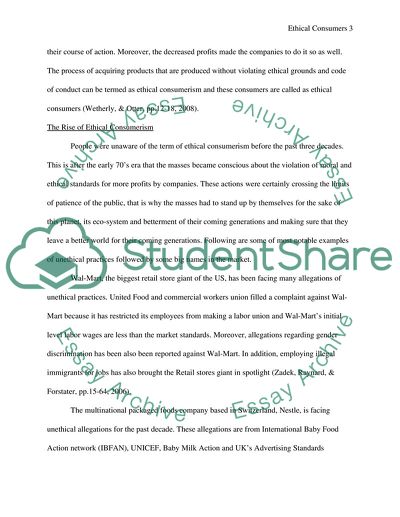Cite this document
(ETHICAL CONSUMERS . myth or reality Case Study Example | Topics and Well Written Essays - 1750 words, n.d.)
ETHICAL CONSUMERS . myth or reality Case Study Example | Topics and Well Written Essays - 1750 words. https://studentshare.org/marketing/1560497-ethical-consumers-myth-or-reality
ETHICAL CONSUMERS . myth or reality Case Study Example | Topics and Well Written Essays - 1750 words. https://studentshare.org/marketing/1560497-ethical-consumers-myth-or-reality
(ETHICAL CONSUMERS . Myth or Reality Case Study Example | Topics and Well Written Essays - 1750 Words)
ETHICAL CONSUMERS . Myth or Reality Case Study Example | Topics and Well Written Essays - 1750 Words. https://studentshare.org/marketing/1560497-ethical-consumers-myth-or-reality.
ETHICAL CONSUMERS . Myth or Reality Case Study Example | Topics and Well Written Essays - 1750 Words. https://studentshare.org/marketing/1560497-ethical-consumers-myth-or-reality.
“ETHICAL CONSUMERS . Myth or Reality Case Study Example | Topics and Well Written Essays - 1750 Words”. https://studentshare.org/marketing/1560497-ethical-consumers-myth-or-reality.


